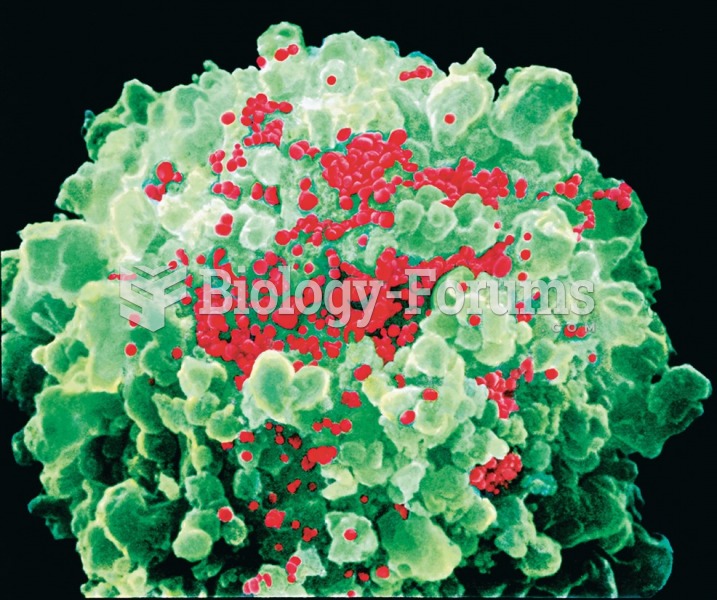|
|
|
IgA antibodies protect body surfaces exposed to outside foreign substances. IgG antibodies are found in all body fluids. IgM antibodies are the first type of antibody made in response to an infection. IgE antibody levels are often high in people with allergies. IgD antibodies are found in tissues lining the abdomen and chest.
There are more sensory neurons in the tongue than in any other part of the body.
The term bacteria was devised in the 19th century by German biologist Ferdinand Cohn. He based it on the Greek word "bakterion" meaning a small rod or staff. Cohn is considered to be the father of modern bacteriology.
Though Candida and Aspergillus species are the most common fungal pathogens causing invasive fungal disease in the immunocompromised, infections due to previously uncommon hyaline and dematiaceous filamentous fungi are occurring more often today. Rare fungal infections, once accurately diagnosed, may require surgical debridement, immunotherapy, and newer antifungals used singly or in combination with older antifungals, on a case-by-case basis.
A strange skin disease referred to as Morgellons has occurred in the southern United States and in California. Symptoms include slowly healing sores, joint pain, persistent fatigue, and a sensation of things crawling through the skin. Another symptom is strange-looking, threadlike extrusions coming out of the skin.
 Bayliss and Starling discovered the mechanism by which the small intestine and pancreas work togethe
Bayliss and Starling discovered the mechanism by which the small intestine and pancreas work togethe
 In 1900, Ashcan artist George Luks portrayed corporate monopolies and franchises as a monster preyin
In 1900, Ashcan artist George Luks portrayed corporate monopolies and franchises as a monster preyin
 Often one of the strongest family bonds is that of mother–daughter. The young artist, an eleventh ...
Often one of the strongest family bonds is that of mother–daughter. The young artist, an eleventh ...




